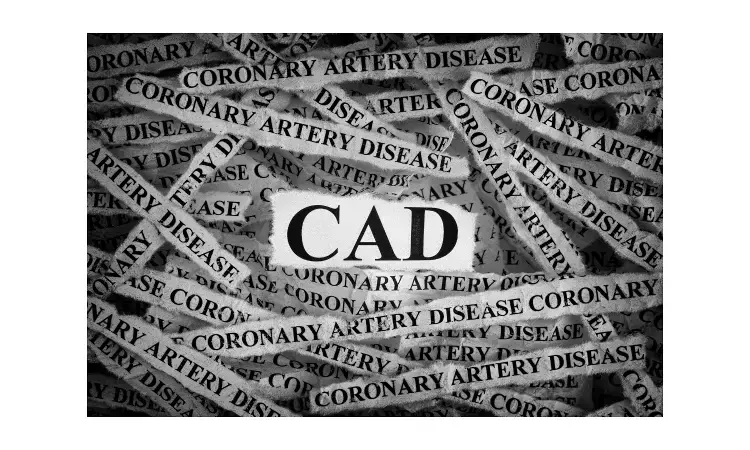- Home
- Medical news & Guidelines
- Anesthesiology
- Cardiology and CTVS
- Critical Care
- Dentistry
- Dermatology
- Diabetes and Endocrinology
- ENT
- Gastroenterology
- Medicine
- Nephrology
- Neurology
- Obstretics-Gynaecology
- Oncology
- Ophthalmology
- Orthopaedics
- Pediatrics-Neonatology
- Psychiatry
- Pulmonology
- Radiology
- Surgery
- Urology
- Laboratory Medicine
- Diet
- Nursing
- Paramedical
- Physiotherapy
- Health news
- Fact Check
- Bone Health Fact Check
- Brain Health Fact Check
- Cancer Related Fact Check
- Child Care Fact Check
- Dental and oral health fact check
- Diabetes and metabolic health fact check
- Diet and Nutrition Fact Check
- Eye and ENT Care Fact Check
- Fitness fact check
- Gut health fact check
- Heart health fact check
- Kidney health fact check
- Medical education fact check
- Men's health fact check
- Respiratory fact check
- Skin and hair care fact check
- Vaccine and Immunization fact check
- Women's health fact check
- AYUSH
- State News
- Andaman and Nicobar Islands
- Andhra Pradesh
- Arunachal Pradesh
- Assam
- Bihar
- Chandigarh
- Chattisgarh
- Dadra and Nagar Haveli
- Daman and Diu
- Delhi
- Goa
- Gujarat
- Haryana
- Himachal Pradesh
- Jammu & Kashmir
- Jharkhand
- Karnataka
- Kerala
- Ladakh
- Lakshadweep
- Madhya Pradesh
- Maharashtra
- Manipur
- Meghalaya
- Mizoram
- Nagaland
- Odisha
- Puducherry
- Punjab
- Rajasthan
- Sikkim
- Tamil Nadu
- Telangana
- Tripura
- Uttar Pradesh
- Uttrakhand
- West Bengal
- Medical Education
- Industry
Noninvasive Voice Biomarker to be linked With Incident Coronary Artery Disease

Coronary artery disease (CAD) is the most common type of heart disease, killing 360,900 people in 2019. About 18.2 million adults age 20 and older have CAD (about 6.7%). About 2 in 10 deaths from CAD happen in adults less than 65 years old.
A recent study found that a significant association between a noninvasive voice biomarker and incident CAD events at follow-up. These results may have important clinical implications for the remote and noninvasive screening of patients to identify those at risk of coronary disease and its complications. The study is published in Mayo Clinic Proceedings.
The study included patients referred for clinically indicated coronary angiography underwent a total of three 30-second voice recordings using the Vocalis Health smartphone application between January 1, 2015, and February 28, 2017. A pre-established voice biomarker was derived from each individual recording, and the mean biomarker value was calculated for each patient. Individuals were clinically observed through December 31, 2019. The prespecified primary outcome was a composite of presenting to the emergency department with chest pain, being admitted to the hospital with chest pain, or having an acute coronary syndrome; the prespecified secondary outcome was a composite of a positive stress test result at follow-up or the presence of CAD at follow-up coronary angiography.
The results of the study were
• In the final analysis, 108 patients were included (mean age, 59.47±11.44 years; male, 59 [54.6%]). The median follow-up time was 24 months (range, 1 to 60 months).
• In multivariable Cox proportional hazards models adjusting for CAD grade on baseline angiography, a high baseline mean voice biomarker was significantly associated with both the primary (hazard ratio, 2.61; 95% CI, 1.42 to 4.80; P=.002) and secondary (hazard ratio, 3.13; 95% CI, 1.13 to 8.68; P=.03) composite outcomes.
Researchers concluded that "This study found a significant association between a noninvasive voice biomarker and incident CAD events at follow-up. These results may have important clinical implications for the remote and noninvasive screening of patients to identify those at risk of coronary disease and its complications."
Reference: https://doi.org/10.1016/j.mayocp.2021.10.024
Medical Dialogues consists of a team of passionate medical/scientific writers, led by doctors and healthcare researchers. Our team efforts to bring you updated and timely news about the important happenings of the medical and healthcare sector. Our editorial team can be reached at editorial@medicaldialogues.in.
Dr Kamal Kant Kohli-MBBS, DTCD- a chest specialist with more than 30 years of practice and a flair for writing clinical articles, Dr Kamal Kant Kohli joined Medical Dialogues as a Chief Editor of Medical News. Besides writing articles, as an editor, he proofreads and verifies all the medical content published on Medical Dialogues including those coming from journals, studies,medical conferences,guidelines etc. Email: drkohli@medicaldialogues.in. Contact no. 011-43720751


